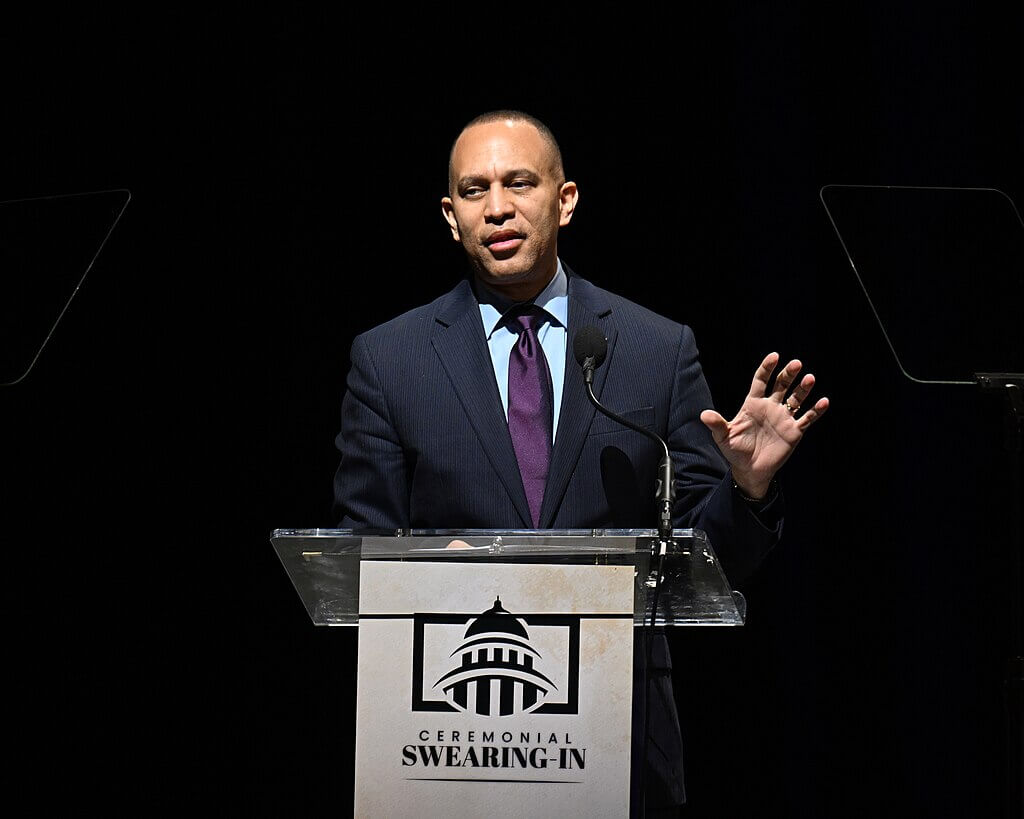
During a press conference on Thursday, House Minority Leader Hakeem Jeffries (D-NY) made a bold statement regarding the identification of Immigration and Customs Enforcement (ICE) agents. Jeffries declared his intention to expose the identities of masked ICE agents who conduct deportation raids. This announcement comes in the face of increasing death threats against ICE agents and their families, which has prompted agents to wear protective masks for security reasons.
The issue was addressed by White House border czar Tom Homan, who spoke with reporters last week about the escalating threats. "The assaults on ICE officers are high. The doxing of ICE officers are at an all-time high," Homan stated, emphasizing the importance of protecting the identities of agents to ensure their safety and that of their families.
Despite these concerns, Jeffries remained firm in his stance during the press conference, arguing for transparency and accountability. He drew historical parallels, comparing present-day immigration enforcement to the actions of authoritarian regimes such as the Gestapo and the Soviet Union's NKVD. "This is not the 1930s," Jeffries said, vowing to identify every ICE agent, a process he admits may be lengthy and resource-intensive.
.@RepJeffries just threatened every ICE agent:“Every single one of them, no matter what it takes, no matter how long it takes, will, of course, be identified.”Threatening federal officers is a federal crime.@AGPamBondi, arrest Hakeem Jeffries.pic.twitter.com/3rFy5r3l1n— Paul A. Szypula 🇺🇸 (@Bubblebathgirl) June 3, 2025
— Bubblebathgirl (@Bubblebathgirl)
The Democratic leader's comments were made against a backdrop of confrontations involving Democratic lawmakers and federal immigration officers. One incident involved Rep. LaMonica McIver (D-NJ), who was filmed in a physical altercation with ICE agents at a facility last month. Jeffries supported the lawmakers' intervention, describing it as necessary oversight.
The timing of Jeffries' pronouncement is particularly alarming given a recent incident in Philadelphia where an unidentified man issued death threats against ICE agents. The man's confrontation with federal officers was recorded, and his threats included violent language and calls for retaliation against the agents.
As the debate intensifies, there are significant implications for the safety of federal agents and the public's right to transparency. The controversy raises questions about the balance between security and accountability, and the potential consequences of stripping away the anonymity that ICE agents currently rely upon.





